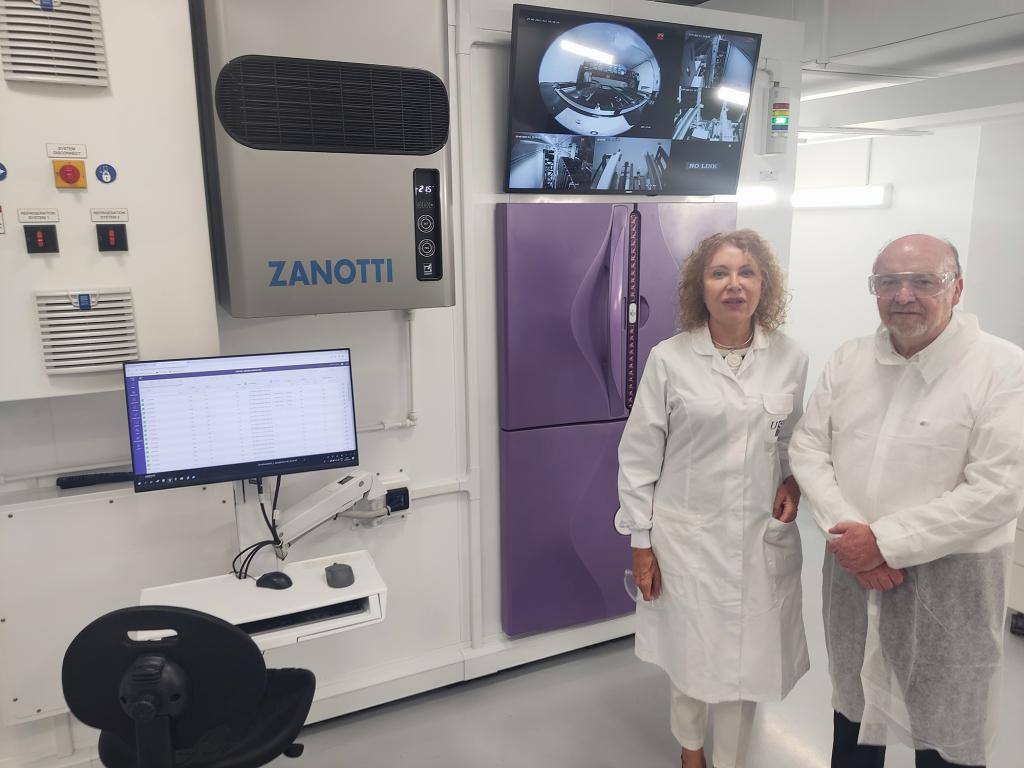A public-private collaboration agreement facilitates the creation of a mixed unit for the screening and discovery of new antimicrobial agents.
The infections caused by antibiotic resistant bacteria are, in today’s day and age, one of the biggest health problems in the world, in terms of mortality, social and economic impact. Multiresistant bacteria cause 1,27 million deaths per year and the WHO estimates that, in 2050, they will be the leading cause of death in the world, taking more than 10 million lives a year. The reason for this is that the same antibiotics that aided in the saving of millions of lives in decades past, have stopped being effective against these bacteria.
Hence, pharmacological research faces the challenge of providing, with the utmost urgency, new, effective antibiotics in order to treat these types of infections that are also affordable for the population at large. Facing this situation, the Plataforma de Descubrimiento de Fármacos Innopharma, which is dependant on the Centro Singular de Investigación en Medicina Molecular y Enfermedades Crónicas (CiMUS) from the University of Santiago de Compostela, has reached an agreement with the ABAC Therapeutics company, dedicated to antibiotic research, to join forces in the search of new therapeutic solutions.
Specifically, both entities have agreed to the creation of a new mixed unit which will allow, with the utmost efficacy and cost optimization, the screening of compound collections, with the goal of identifying future antimicrobials that are efective agasint multiresistant bacteria.
Multiresistant bacteria cause 39.000 deaths per year in Europe, and the WHO estimates that in 2050 they will be the main cause of death worldwide
Bacteria’s resistance to the arsenal of microbial agents available today is one of the biggest threats to global health humanity faces in the 21st century. “The so called silent pandemic has no borders. Multiresistant bacteria cause 39.000 deaths a year in Europe. What’s more, this grave human catastrophe has an important social and economic impact that, only in Europe, costs around 1.500 million euros a year”, comments Domingo Gargallo-Viola, director of ABAC Threrapeutics.
Bacteria becomes resistant due to their capability to mutate and adapt in response to adverse conditions, such as the overuse of antibiotics, which allows some bacteria to escape their effect, which complicates the treatment of infections that have become more and more common over time, and harder to treat clinically, such as pneumonia, tuberculosis, sepsis and gonorrhea.
“It is urgent that we discover and develop new types of antibiotics against multiresistances, and to do this, we want to screen multiple compound collections with the goal of identifying new drugs agasint multiresistant bacteria. Only a strategy based on the middle and the long term can provide an answer to this dire global health problem”, highlights the director of CiMUS and of the Innopharma platform, Mabel Loza.
Maximum security for a global health challenge
In order to perform research on living, pathogenic microorganisms, the pharmacologists are obligated to work with these resistant bacteria, which means they need access to laboratories with maximum security conditions, in which these hazardous microorganisms can be manipulated with professional knowledge and technical safety. On this new collaborative unit, ABAC Therapeutics has the proper installations available, and the necesary work experience with resistant bacteria. On the other side, the Innopharma platform provides the necesary experience and the unique Spanish infrastructure capable of completely automated processing of millions of compounds.
The collaborative unit between ABAC Therapeutics and the Innopharma-USC platform means a strategic opportunity to face the challenge present in identifying new, efficient compounds against said organisms, and providing new therapeutic solutions for the patients infected by the current antibiotic multiresistant bacteria.
This pioneering unit constitutes a European refferent, and opens the door for the incorporation of new collaborators, in order to propell the urgent search for antimicrobial agents in a synergistic and efficient way, in order to fight this silent, global pandemic, guaranteeing accesibility of all these treatments to everyone in need.
About ABAC Therapeutics
The company was created in 2014, with the goal of discovering and developing new antimicrobial agents with a new perspective, centered in precision medicine. The research is focused on the discovering of antibiotics with specific activity against pathogenic bacteria. The goal of ABAC is oriented towards providing great value to society, reducing the harmful impact multiresistant bacteria have, which came to life due to the non-specific, and indiscriminate use of antibiotics today.
The ABAC Therapeutics team develops an innovative and disruptive with a clear goal: providing value and improving people’s quality of life trough a pharmacological strategy based on a new algorithm, which allows for the discovery of specific antibacterials, capable of fighting infections caused by multiresistant bacteria.
About the Innopharma-USC CiMUS platform
The pharmagenomic and drug screening platform Innopharma is a High Capabilities platform from the european research infrastructure consortium ERIC EU-OPENSCREEN. They count on a series of technological vanguard capabilities that efficiently cover all of the different phases of drug discovery, allowing the team to develop projects in public-private collaborations, in which 17 different drugs reached the human clinical test phase.
In the specific case of the mixed unit with ABAC Therapeutics, on top of this succesful professional experience, they provide completely automated gear, unique in Spain, for the handling and management of millions of compounds. Part of these new technologies has recently been incorporated into the Innopharma platform, thanks to a collaboration agreement between the Universidad de Santiago de Compostela and the Agencia Gallega de Innovación, with the goal of updating and growing the Innopharma platform, trough the REACT-EU fund within the Programa Operativo FEDER Galicia 2014-2020.
It is located in the Centro Singular de Investigación en Medicina Molecular y Enfermedades Crónicas (CiMUS), a facility within the Universidad de Santiago de Compostela, a referent in traslational and transference research.

